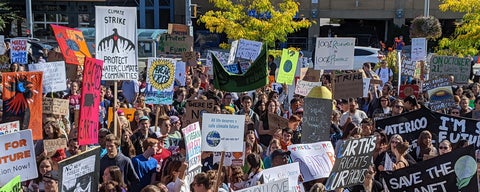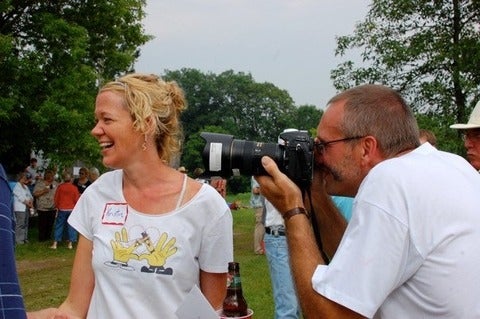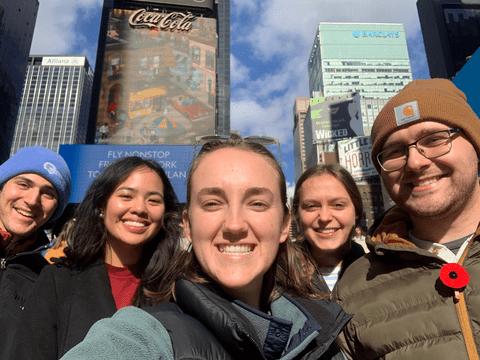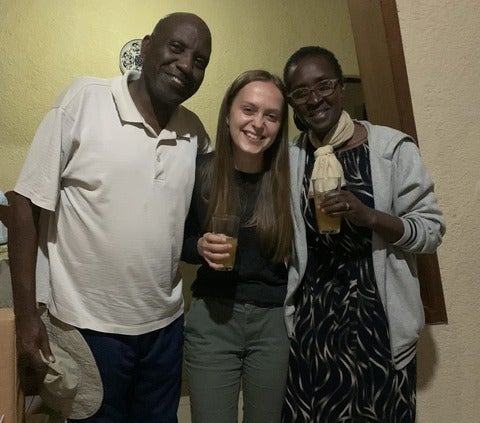Turbulent times like ours call for people who understand systems of violence and conflict, and who are prepared to build peace with justice. This involves identifying and transforming systems of violence, marginalization, and oppression, including racist, gendered and colonial violence at home as well as around the world. Whether working locally or globally, Peace and Conflict Studies is committed to imagining, educating, and ongoing learning that equips our graduates to pursue justice and peace.
PACS as a department is located on territory that is governed by the Dish with One Spoon Wampum and land promised to the Six Nations Confederacy in 1784 as part of the Haldimand Declaration. For more information, see Conrad Grebel University College's land acknowledgement and read about decolonization at the University of Waterloo's Office of Indigenous Relations.
Why Study Peace and Conflict Studies (PACS)?
Learn diverse ways to promote peace, equitable justice, and social change through a vibrant interdisciplinary program that combines the study of history, political science, sociology, and psychology to understand better the causes and impact of interpersonal, communal, and international conflicts and violence in different societies. You will explore theory, research, and practice in classes taught by leading peace and justice scholars and practitioners. As an arts student, you will bring a unique perspective and set of skills to peace and conflict studies. Your creativity, critical thinking, and empathy can help contribute to finding new and innovative solutions to the complex challenges of peacebuilding and conflict resolution.
Take courses on conflict mediation, non-violent social change, gender and peacebuilding, religion and culture, environment, community transformation, human rights and social justice, refugees and forced migration, negotiation strategies, trauma, healing, and restorative justice.
Prepare to become a peace practitioner, community leader, or entrepreneur in conflict management programs or work with community and international development organizations, education systems, law firms, social services, refugee resettlement program support agencies, and more after graduation.
Who are PACS graduates?
PACS graduates have gone into many careers and used their training in different ways.
To learn more about what students can do after they graduate from PACS, check out our alumni profiles
News
Kristin Reimer (BA, PACS 1998): On 500 Friends
Kristin moved into Grebel and the University of Waterloo in the fall of 1995 initially to pursue her first love – acting. She enrolled in the theater program but transferred after her first year as she developed a keen interest in her Peace and Conflict Studies (PACS) electives and decided to keep acting alive as a hobby. After graduating in 1998, she ventured off alone to the United States for work, where she quickly began missing her friends. “I decided I needed one day in my life where everyone I’ve ever met in the entire universe could get together and just party and celebrate life together,” said Kristin. “And so that’s when the 2010 party was born.”
Peace and Conflict Studies students participate in United Nations Conference in New York City
Six Peace and Conflict Studies (PACS) students from Conrad Grebel University College at the University of Waterloo were selected to attend the Mennonite Central Committee’s (MCC) United Nations (UN) Office Seminar on November 1-3, 2023. The three-day event held in New York City invited student delegates from across Canada and the United States to gather with one question in mind, does the UN matter?
Journal on understanding special attention and treatment of White people in Rwanda
In this journal, I reflect on my experience working with the Mennonite Central Committee’s partners in Rwanda - Transformational Leadership Center (TLC), an organization that runs the peace library where I was placed as an intern.













